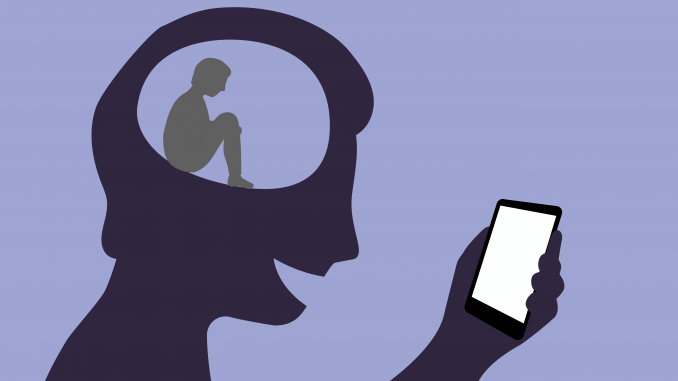

As a person living with bipolar disorder, social anxiety and attention deficit hyperactivity disorder, life can feel a bit chaotic. My moods fluctuate abnormally, my limited attention span makes everything seem like a bigger task than it is and anxious thoughts can hold me back from doing simple tasks, like ordering food over the phone.
Not too long ago, however, I came across a meme on social media that used these conditions as a punchline to a joke. Placed above an image of a man making a contemplative facial expression, the text read “My brain when it doesn’t have enough serotonin” and “I have decided that I want to die.”
I laughed briefly, but looking at the bigger picture, I mainly felt sadness. I felt a sense of empathy for the person who created this meme and for all those who could relate to it, including myself. While it’s healthy to talk about having suicidal thoughts, it feels insensitive to poke fun so nonchalantly.
Suicide rates among young people ages 15-24 rose to their highest rate on record in 2017, roughly doubling since 2000, the Los Angeles Times reported. Suicide is also the second-leading cause of death for individuals ages 10-34, US News reported, and memes that use suicidal ideation as a punchline ignore the severity of this situation.
While it’s comforting to find another soul who shares similar struggles, mental health memes ignore the severity of mental illness.
“I think it helps,” said Tarek Yahya, a sophomore biology major. “I feel like from what I’ve seen before on Twitter is that these memes make it easier for people to talk about mental health and depression. You can talk about it more easily when there’s jokes about it.”
Although a meme that perfectly explains my mental issues without being insensitive can make me laugh and feel less alone, my issue is when the conversation stops right there.
After we like or repost a mental health meme, the issues are still there. This person is still suffering, and so are all the people who interacted with it.
“I can honestly say that in some of my darkest moments, the memes have provided comedic relief and comfort just letting me know that I’m not the only one who is going through these things,” said Jordan Campbell, a junior psychology major. “However, I feel as though those who aren’t necessarily struggling with depression or anxiety may have a bad day and choose to repost these even if they don’t fully connect to the meme or message.”
Through sheer exposure, mental health memes break the stigma surrounding mental health, a barrier that prevents 60 percent of adults with mental illnesses from seeking treatment, according to the American Addiction Centers.
Beyond offering little to no serious conversation about mental illness, these memes pass through social media timelines in a matter of seconds, doing nothing to actually help individuals with their issues.
“Coping techniques are as unique as the person employing them,” said Liz Zadnik, assistant director for the Wellness Resource Center. “Humor is not inherently healthy or unhealthy. It is dependent on how the person feels in other dimensions of their life and wellness.”
“Is humor being used to build authentic bonds and support networks? Is it being used to make light of self-harm or suicide?” Zadnick added.
When it comes to addressing the seriousness of mental health, social media can be a mixed bag, but ultimately, it’s a tool we can use to start a conversation about mental illness.
Instagram accounts like Lisa Olivera Therapy, Notes From Your Therapists and Alexandra Solomon are run by licensed therapists that inform their followers about trauma, healing, and self-care.
While it doesn’t compare to seeing a therapist, these posts provide more long-term self-help than memes do.
“Moving forward, it is my hope that we can form strong connections and support. I hope that more people begin to use social media compared to it using us. I believe it’s what we make it,” Moyers added.
Mental illness is a complex and multidimensional issue, and a meme that happens to reference those issues can’t even begin to unpack that.
While we do need to laugh and find communities of similar people, we also need to use social media as a tool to begin this conversation and to provide resources for those struggling.



Be the first to comment